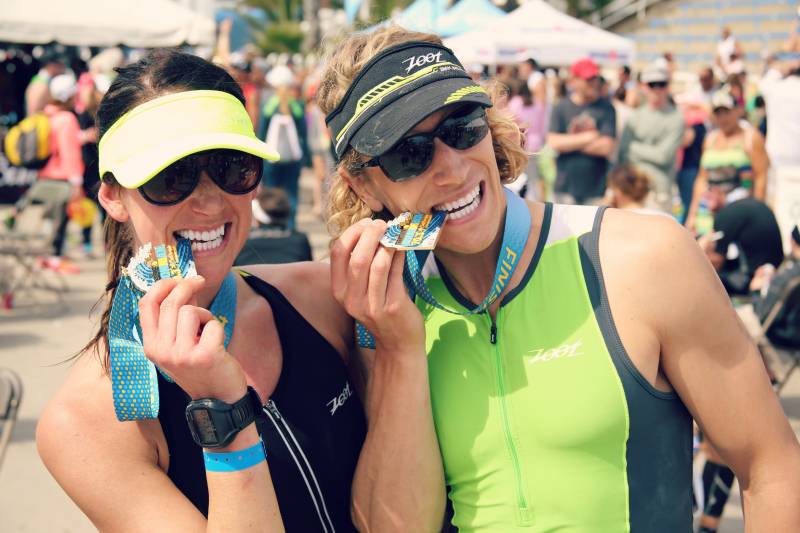What To Eat When Training For A Race

Over the years many of you have asked for a way to alter the #TIUplan when training, and it’s all very specific to how often and how intense your training is.
Today our in-house RD, Lori Zanini is answering a very popular question: how to increase calories if you’re training for a race.![]()

Proper nutrition while training for and running a race is vital for performance, recovery, and overall wellness. Adapting your TIU plan to meet your needs during this time is simple and I'm going to break it down for you below.
But first, make sure you follow these important steps:
- Eat every 3-4 hours! You should already be doing this by following the TIU nutrition plan, and eating M1-M5. It's especially important when you’re working out harder to never go longer than 4 hours without eating anything during the day.
- When training, your body needs additional calories from carbohydrates in order to increase the glycogen in muscles. Glycogen is the stored form of carbs that help fuel endurance sports. Easily digested carbs that work well, and are TIU approved, include sweet potatoes, bananas and watermelon to name a few. For a refresher on carbs, refer to page 41 in your TIU Nutrition Plan.
- Weigh yourself before and after long runs to gage how much water is being lost. You should drink 16-24 oz of water for every pound lost during exercise. But the ultimate goal is to hydrate effectively during your run so that you do not lose a considerable amount of water weight.
Now that we’ve covered the basics, let’s dive deeper. I like to break down sports nutrition guidelines for what to do before, during, and after a race or long run. Please note that a long run qualifies as anything that goes on for longer than 60 continuous minutes.
Before
Eat something 2-4 hours before your planned training run. Experiment during training to know what the perfect time frame for eating is for you. This can vary from person to person. Some people are able to eat 2 hours before a run while others feel they need a longer amount of time to let their food digest. It should contain easily digested carbohydrates + protein. Examples of this would be:
1. Your favorite fruity PFP smoothie
3. Greek/almond/coconut yogurt topped with fruit
4. 1 whole fruit + 1 hard-boiled egg
During
First of all, you need 3-4 cups of fluid during an hour of strenuous activity. If you're running for more than 60 minutes, that's when nutrient and hydration needs begin to change. I like to encourage getting electrolytes after the 60 minutes as well, which can come for coconut water.
You also need 30-60 grams of carbohydrates per hour of exercise. This can be in liquid form, a sports bar, or solid food, whatever your stomach tolerates best. A helpful hint is to experiment with this BEFORE race day.
After
After a long training sesh, you need 10-20 grams of protein along with 15 grams of carbohydrates within 30 minutes. Continue to rehydrate and be sure to eat a well-balanced meal within 2 hours of completing your exercise.
As always, listen to your body while training, competing, and recovering. If you feel hungry while increasing your activity, be sure to make sure you are properly hydrated since this helps you better gauge your hunger levels. Continue to focus on the most nutrient-dense foods available. Vegetables, lean protein, and energizing carbohydrates are all important parts of a runner’s nutrition plan.








 For women, by women
For women, by women
 Share. Love. Inspire. Sweat.
Share. Love. Inspire. Sweat.
 Live Your Healthiest, Happiest Life
Live Your Healthiest, Happiest Life